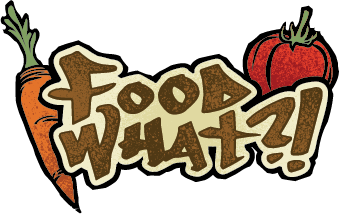Our Story
Like so many good things on this planet, FoodWhat started as a seed. A seed is the embodiment of what’s possible. It is a deep hope for growth. For support. For more.
In our context, the seed that was FoodWhat was sown in service to the many youth in our community and the growth it sought was along the lines of the amount of safety, security, and love youth could experience from their community. Every new root offshoot, every fresh leaf, every blooming flower has been tethered to the belief that young people deserve the resources, lessons, and support they need to build the life they want to live. A life where their liberation, well-being, and power are valued unconditionally.
This seed was planted in 2007, when we first opened our farmland to this work and welcomed five youth into our first ever learning cohort. To this day, we remain an organic farm, a teaching kitchen, and a supportive learning space focused on the whole person of each youth.
During our first phase of existence, we learned that in order to achieve the deepest level of equity in our framework, we would need to make our organization as accessible as possible for youth living in the Pajaro Valley. In turn, by 2015, we were a county-wide organization, working predominantly in the Pajaro Valley. This process was scaffolded by listening closely to the needs of Pajaro Valley youth, building authentic relationships with Pajaro Valley partners, bringing on more and more staff from the Pajaro Valley, and holding our organization accountable to unique needs and culture of the Pajaro Valley.
2019 was a huge year for FoodWhat. First, a five year longitudinal research study was conducted on FoodWhat and recently released to the public through two advocacy events. The research concluded that FoodWhat has an immense impact in the areas of youth well-being, identity formation, agency building and food- and farm-based learning, among others. The research identified the intentionality with which FoodWhat staff creates opportunities to share power, create safe space, support youth to reclaim their stories, and embody learning through meaningful co-work on the farm. This research has been widely accepted from school districts, to government officials as a verified evidence base of FoodWhat’s depth of impact. That year we also received several honors. First, we received the Justie Award, a recognition of advocacy that centers social justice in the agricultural movement. Then, we received a Nonprofit of the Year Award from Senator Bill Monning. Last, we received the Mayor’s Proclamation from the City of Santa Cruz.
Of course, if 2019 was a big year, 2020 was certainly bigger. The COVID-19 pandemic called FoodWhat to meet the crisis head on, shoulder to shoulder with other nonprofit agencies throughout the county. To meet the call, FoodWhat transformed our offerings to be completely virtual and stood up crisis response support such as distributing cash and food assistance to families in need. We provided one-on-one support to each youth and stood up a community resource linkage system that connected families to economic, mental health, and healthcare resources. By 2022, FoodWhat returned to our in-person program model while maintaining the digital elements we created that enhanced youth learning.
After 18 years of nurturing from youth, staff, supporters, and partners, FoodWhat is no longer a hopeful seed, but a sturdy plant with deep roots. And while we have grown from a cohort of five youth to close to 100 youth each year, the core of our work remains tied to how land, food, and belonging deeply benefit the well-being, liberation, and power of marginalized young people. From here, we intend to continue showing up for youth in all the ways we know how and learn all the new ways we can into the future.









